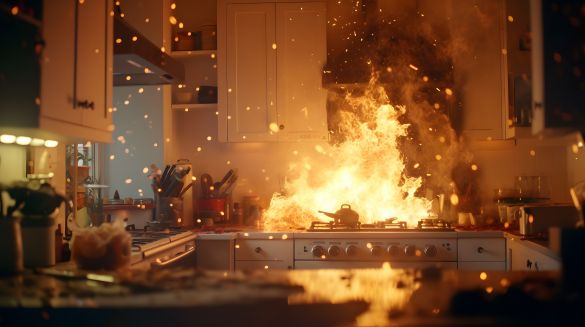News
We share our news and views on industry-related events.
News | Fire insurance: why you need more than just a sound policy
Fire insurance: why you need more than just a sound policy
November 23 2023 By Reliance Insurance Brokers short term insurance, fire insurance

When it comes to home or property fires, prevention really is better than cure, because even though your buildings insurance covers fire, your claim could be rejected if your property wasn't adequately secured against this risk.
Fire accounts for the highest number of insurance claims in South Africa. In the event of the fire, the losses are usually extensive, as the fire itself as well as smoke and the water used to extinguish the fire all cause damage.
Repairing or replacing belongings, appliances, equipment, furniture or even structures, either in part or totally, is expensive, and not a cost most South Africans can afford. This is where insurance really comes into its own, as it not only covers structural damages, but other losses as a result of the fire as well.
However, it's important to understand that just because your policy covers you for fire, the responsibility lies with you to ensure that all precautions have been taken to lessen the chances of a fire breaking out.
There are different safety measures to take depending on where you live. For example, if you live in a freestanding suburban house, you'll need to regularly check your home and garage for fire hazards.
But if you live on a small holding or farm in a high-risk fire area, like next to open veld or a wooded area with highly flammable invasive trees, you'll need to also secure the perimeter of your property and the exterior of your house.
Precautions you can take include:
- Installing smoke detectors in each room. Make sure the installation is carried out correctly, that your detectors are properly maintained, and that you regularly test them.
- Having fire extinguishers on hand. Put fire extinguishers in high-risk rooms like the kitchen or garage, or close to braais or fire pits. Make sure family members know how to use the extinguishers, and that they are regularly serviced.
- Checking electrical sockets. Check plug points for burn marks on the outside, and switches for any signs of buzzing or crackling.
- Ensuring correct gas, generator, solar and electrical installations. If you're upgrading your home electricity supply to include alternative power sources, these must be professionally installed and you must be given a certificate of compliance by a qualified electrician afterwards.
- Correctly storing flammable products. If you keep flammable products in your garage, make sure these are stored according to the manufacturer's instructions, far away from items that can easily catch on fire, like cardboard boxes.
- Cutting trees away from the outside of your house. Trees touching your house pose a risk in the event a bush or wild fire. Keep trees cut way from the building, remove firewood stores from directly outside your house, and reduce the fuel load on your property by recycling paper and cardboard, and removing old garden refuse.
Always check your insurance policy to ensure the safety precautions you have taken are in line with your insurer's recommendations. This greatly reduces the chances of having your fire claim repudiated.